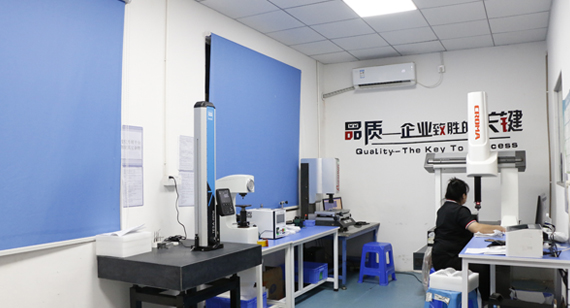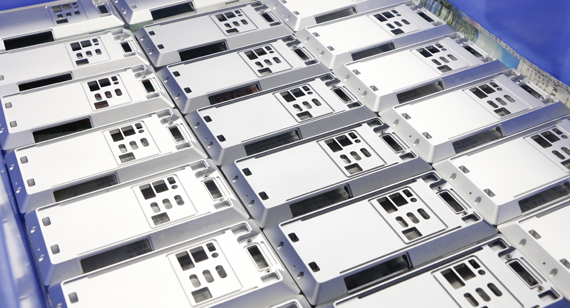15 years one-stop China custom CNC machining parts factory

Hey there I’m VMT Sam!
With 25 years of CNC machining experience we are committed to helping clients overcome 10000 complex part-processing challenges all to contribute to a better life through intelligent manufacturing. Contact us now
 145 |
Published by VMT at Jan 09 2024
145 |
Published by VMT at Jan 09 2024
Introduction
In the process of batch custom CNC machining part production, the detection of defects is a common challenge. Ensuring the on-time delivery of CNC parts while addressing detected defects poses a significant challenge in the production process. This article explores strategies and practices to address this challenge, ensuring the smooth progress of the production workflow.

I. Defect Detection and Root Cause Analysis
In the CNC machining part production process, defect detection is a crucial element of quality control. Utilizing advanced inspection tools and methods such as optical inspection and eddy current testing allows for timely identification of surface and internal defects. Once defects are detected, an immediate root cause analysis should be conducted to determine the reasons behind the defects and potential influencing factors. This aids in formulating targeted solutions to prevent the recurrence of defects.

II. Emergency Handling and Production Plan Adjustment
Upon detecting defects, activate emergency procedures immediately. Isolate and identify defective parts to prevent non-conforming products from progressing to the next production step. Simultaneously, adjust the production plan to prioritize the manufacturing of compliant parts, ensuring on-time delivery. For defective parts, develop a rework or repair plan based on the specific situation to quickly restore the production process. During rework, maintain strict quality control to prevent the reappearance of defects.
III. Technological Improvements and Preventive Measures
Implement technical improvements tailored to the detected defects and their root causes. This may involve adjustments to process parameters, tool replacements, equipment maintenance, and other enhancements. Through technological improvements, enhance the quality and efficiency of part machining, minimizing the occurrence of defects. Simultaneously, establish preventive measures, strengthen monitoring, and management of the production process to prevent the recurrence of similar defects.
IV. Strengthen Collaboration and Communication
In addressing defects, fostering collaboration and communication between departments is crucial. Production departments should promptly communicate issues to the quality department, collaboratively analyze and resolve detected defects. Simultaneously, enhance communication with customers, ensuring they are informed about production issues and solutions to meet delivery schedules. Effective collaboration and communication form a collective effort to tackle challenges in the production process.
V. Continuous Improvement and Quality System Development
During the defect resolution process, focus on continuous improvement and quality enhancement of the production process. Collect and analyze data from the production process continually to optimize process parameters, equipment configurations, and production schedules. Simultaneously, strengthen the development of the quality system, refining quality management systems and control procedures. Through continuous improvement and quality system development, enhance the stability and reliability of the production process, reduce defect rates, and ensure on-time delivery of CNC machined parts.
VI. Training and Awareness Enhancement
To elevate employee sensitivity and capability in dealing with quality issues, intensify training and awareness programs. Conduct regular training sessions on quality awareness, skill development, and operating procedures to familiarize employees with quality standards and operational norms. Encourage employee participation in quality improvement activities to boost enthusiasm for quality management. Through training and awareness enhancement, reinforce employees' sense of responsibility and quality consciousness, reducing defects at the source.

Conclusion
In summary, addressing defects in the batch custom CNC machining part production process requires a comprehensive approach, covering defect detection and root cause analysis, emergency handling and production plan adjustment, technological improvements and preventive measures, strengthened collaboration and communication, continuous improvement, quality system development, and training and awareness enhancement. By applying these measures in a synergistic manner, the on-time delivery of CNC machined parts can be effectively ensured, while enhancing the quality and stability of the production process. In practical production, flexible application of these strategies and practices based on specific circumstances is essential for continuous optimization and improvement of the production workflow to meet changing market demands and enhance the competitiveness of the enterprise.
Ready To Start Your Next Project?
Get Instant Quote

Request a Free Quote
Send us a message if you have any questions or request a quote. We will get back to you ASAP!